Right from the beginning of the season, Vietnam's durian exports have encountered difficulties in the Chinese market due to strict quarantine and the emergence of new competitors, causing prices to drop sharply.
At northern border gates, durian containers have been waiting for customs clearance for weeks because China inspects 100% of shipments, reducing the quality of the fruit. In the West, farmers have had to sell durian at low prices, only 35,000-70,000 VND per kilogram, a sharp 30% drop from the beginning of the year and one-third of last year's price.
In the first two months of the year, Vietnamese durian exports to China fell sharply, with revenue reaching 27 million USD, down 83% compared to the same period last year. Market share in this country has dropped from 62% to 37%, while Thai goods have skyrocketed from 37% to 62.3%.
According to businesses, the main reason This is due to increasingly stringent quality control requirements from China. This country is currently tightening the control of heavy metal residues and yellow O - a chemical banned from use in agricultural products. Along with that are warnings about fraudulent growing area codes and violations of plant quarantine, forcing many businesses to temporarily suspend exports to complete documents and procedures.
Meanwhile, new competitors such as Laos, Indonesia and Cambodia are gradually appearing on the durian export map in China through strategic moves.
Laos emerged as the Attapeu provincial government has just granted three companies the right to grow more than 273 hectares of commercial durian, with the ambition of becoming a new supplier to China. Previously, Chinese companies had cooperated with the Lao Chamber of Commerce to establish a Durian Business Association and a breeding research center, and were allocated an additional 12,000 hectares to develop specialized cultivation areas.
Indonesia is also accelerating to enter the billion-dollar market. With an annual output of more than 1.8 million tons - the largest in the world - the country had its plantations and packaging plants inspected by Chinese Customs in March and is rushing to complete logistics and quarantine. Central Sulawesi province alone has registered more than 3,000 hectares that meet standards and are ready for export.
Cambodia is not left out. In April, the country signed a protocol with China allowing the export of durian, along with bird’s nests and farmed crocodiles – part of 37 new cooperation agreements that opened a big door for the country’s agricultural sector.
Faced with the "encirclement" of new competitors and the tightening of the Chinese side, Vietnamese enterprises are facing a lot of pressure. Mr. Doan Van Ven, General Director of Anh Thu Dak Lak Co., Ltd., said that since the Lunar New Year, his company has not been able to resume exports due to lengthy procedures and long customs clearance times. Meanwhile, new contracts from Chinese partners are trickling in.
An agricultural export director in Tien Giang said the company has temporarily stopped purchasing durian from farmers due to concerns about not meeting quarantine requirements. "Many growing areas have not yet updated the new standards, especially regarding heavy metal residues and fertilizer origins," she said. The company is shifting to providing technical support to raw material areas and has asked local authorities to soon implement an on-site inspection model to reduce cost pressure for both farmers and businesses.
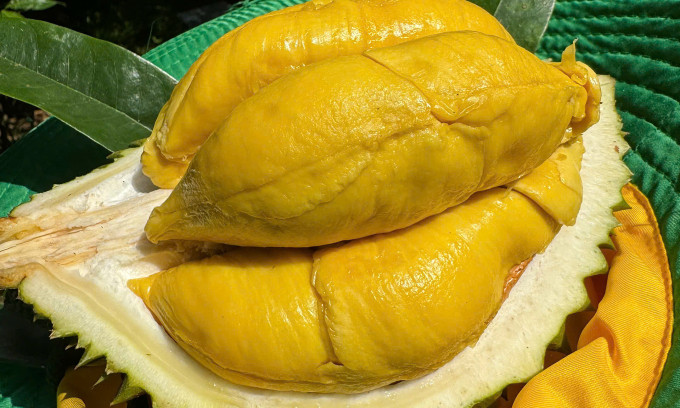
Mr. Dang Phuc Nguyen - General Secretary of the Vietnam Fruit and Vegetable Association - acknowledged that fruit and vegetable exports in general and durian exports in particular to China are slowing down significantly. In the first quarter, China spent only over half a billion USD on Vietnamese agricultural products, down 31% compared to the same period last year.
Fruit testing currently takes a week, greatly affecting the quality of the goods. Businesses propose to shorten the testing time to 3-4 days and increase the number of inspection centers; it is necessary to negotiate for China to recognize the test results in Vietnam to save time and costs.
In addition, businesses also recommend educating farmers about the use of standard fertilizers and avoiding the use of smuggled goods containing banned substances. Authorities should inspect and strictly handle facilities producing poor quality fertilizers.
Mr. Nguyen also suggested that provinces establish fee-based laboratories to collect samples directly from the garden. Farmers should proactively test Cadmium at least half a month before harvest to ensure that the product meets standards. Exporting enterprises should also conduct testing at a lab recognized by China.
"Why can we control diseases in livestock and poultry but not cadmium and yellow O in durian?", Mr. Nguyen raised the issue and said that drastic intervention from authorities is needed.
Deputy Minister of Agriculture and Environment Phung Duc Tien said durian is a key crop and is bringing great export value. "We need to work seriously and systematically to maintain market share and maintain sustainable growth momentum for this industry," he emphasized.
Source






![[Photo] The parade took to the streets, walking among the arms of tens of thousands of people.](https://vphoto.vietnam.vn/thumb/1200x675/vietnam/resource/IMAGE/2025/4/30/180ec64521094c87bdb5a983ff1a30a4)
![[Photo] Cultural, sports and media bloc at the 50th Anniversary of Southern Liberation and National Reunification Day](https://vphoto.vietnam.vn/thumb/1200x675/vietnam/resource/IMAGE/2025/4/30/8a22f876e8d24890be2ae3d88c9b201c)
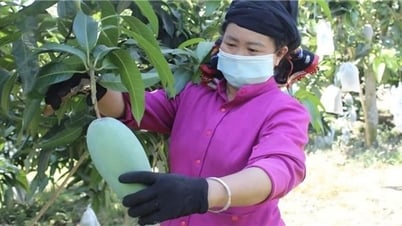

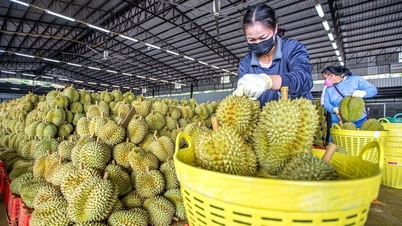

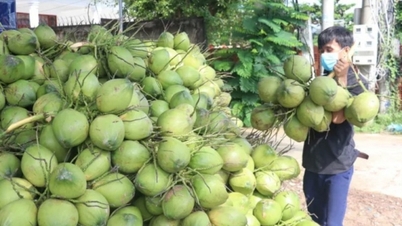

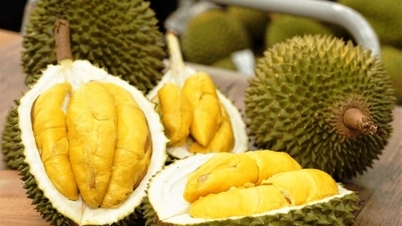

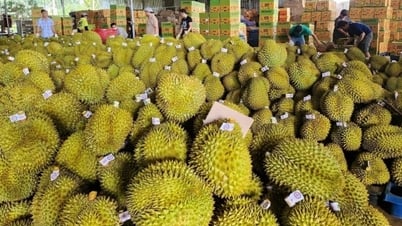

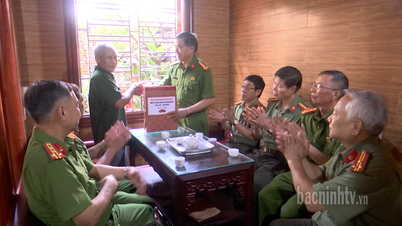

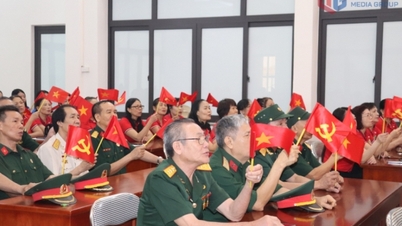

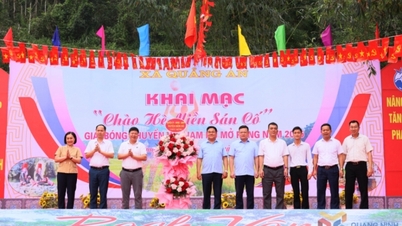




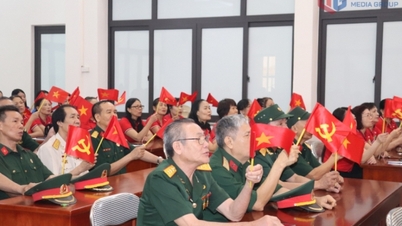


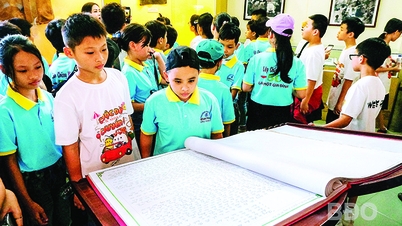


![[Photo] Chinese, Lao, and Cambodian troops participate in the parade to celebrate the 50th anniversary of the Liberation of the South and National Reunification Day](https://vphoto.vietnam.vn/thumb/1200x675/vietnam/resource/IMAGE/2025/4/30/30d2204b414549cfb5dc784544a72dee)

















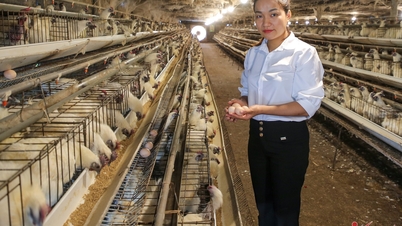

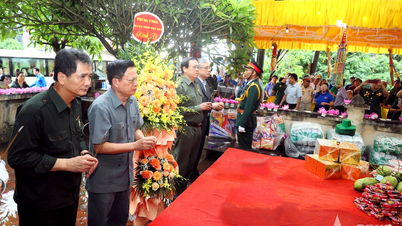























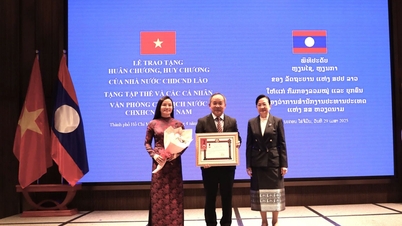








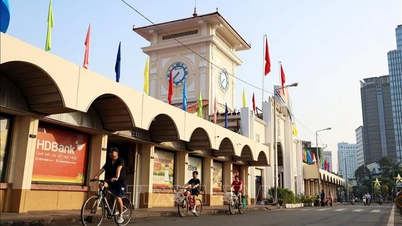

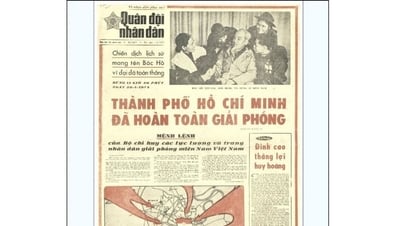












Comment (0)